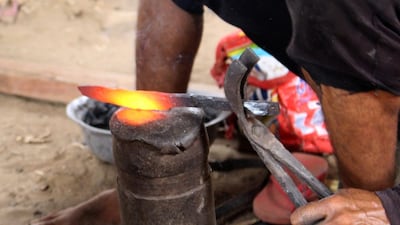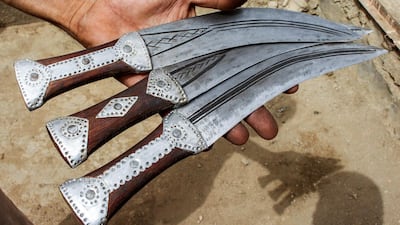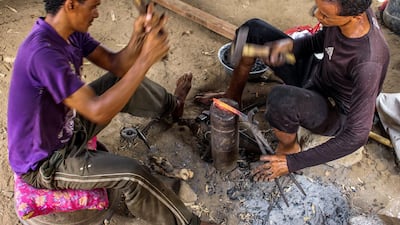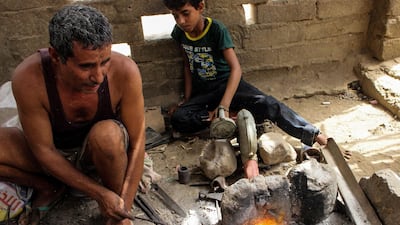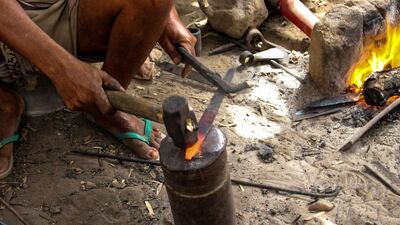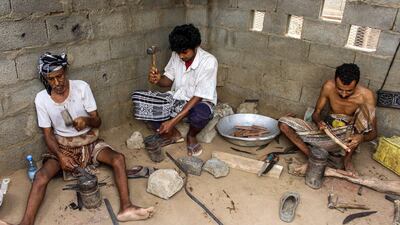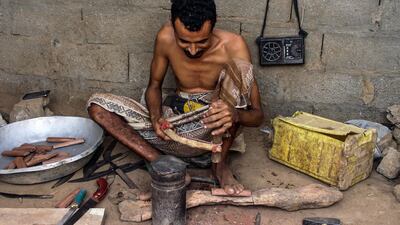In his war-torn city of Hajjah, a Yemeni artisan is transforming shrapnel which litters the streets into the country's celebrated traditional daggers.
For 45 years, blacksmith Mohammed Haradhi has crafted swords for his clients' loved ones and built custom locks.
But after more than three years of war, he and many other Yemenis have been left struggling to find work.
Mr Haradhi has turned to the conflict's debris in Hajjah, his home city in western Yemen, and uses the metal to make traditional jambiyya daggers.
Yemeni men wear the short, curved dagger in an ornate sheath tucked into an embroidered belt. They are often gifted to boys during coming-of-age celebrations that bring the whole family together.
With steel now hard to come by, shrapnel is a "cheap, high-quality metal" to make the daggers, Mr Haradhi said
"Necessity is the mother of invention," he said as he hammered a blade still red from the heat of the furnace at his workshop.
Shrapnel is particularly abundant in Hajjah, which has witnessed intense military operations aimed at driving out rebel fighters.
The city is controlled by the Iran-backed Houthi rebels, who since 2015 have been battling the Saudi-led Arab Coalition backing Yemen's internationally recognised government.
______________
Read more:
UN envoy to Yemen announces Geneva talks in September
Yemen exports the first crude pumped since civil war began
Yemen’s Hadi announces reconstruction projects, on first trip since Aden return
______________
The war has killed an estimated 10,000 Yemenis and pushed the country to the brink of famine. Port blockades have prevented humanitarian aid and other supplies, including steel, entering the country.
But the conflict has not put an end to the craftmanship which dates back hundreds - some historians say even thousands - of years, in Yemen, which is also famed for its hand-embroidered shawls and skilled silversmiths.
Jambiyyas are handed down from generation to generation, across all socio-economic backgrounds.
The daggers range from lower-end models made in China to daggers with handles carved from rhinoceros horn, tucked into diamond-encrusted sheaths, worth close to US$1 million (Dh3.67m).
Those made from repurposed shrapnel sell for up to 20,000 Yemeni riyals (Dh290).
"We pick up the debris on the spot, or sometimes buy it by the kilogram," said Yahya Hussein, another blacksmith in Hajjah.
Residents say demand for the daggers remains high despite the war.
"Some buy jambiyyas made from shrapnel and actually wear them," one Hajjah resident said.
"But some buy them as keepsakes, or to remember the war."
